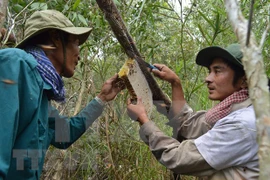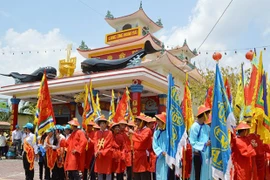Not only a national intangible culturalheritage, “Don ca tai tu” music and song was inscribed on UNESCO’sRepresentative List of Intangible Cultural Heritage of Humanity in 2013.
Evoking people’s lives and work on the land andrivers of the Mekong Delta, it is an indispensable part of spiritual activitiesand the cultural heritage of local people and helps to foster amateur culturalactivities.
Meanwhile, “Ho Dong Thap” is a type of folksinging that reflects the thoughts and sentiments of local residents.
Authorities have worked on studying andrevitalising the art. In particular, training courses have been held in alldistrict-level localities, while classes and extra-curricular activities havebeen organised at all schools province-wide so as to inspire a love among studentsfor the cultural heritage.
Ngo Hoang Viet, Deputy Director of the centrefor culture, sports, and radio broadcasting in the province’s Cao Lanh city,said 47 “Don ca tai tu” clubs with 530 members have been set up around town.
Vice Chairman of the Dong Thap provincialPeople’s Committee Doan Tan Buu noted that local authorities are striving tohave “Don ca tai tu” and “Ho Dong Thap” clubs established in 50 to 70 percentof all communal-level localities.
They are also encouraging each commune, ward,and township to form one club and maintain festivals on the arts annually atthe provincial level and biennially at the district level.
The province is also stepping up communications inthe media to help turn “Don ca tai tu” and “Ho Dong Thap” into typical tourismproducts of Dong Thap./.































